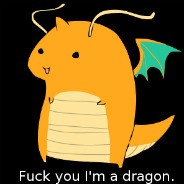Перевести текст task: read the text, find the answers to the questions given below. customs are social habits, patterns of behaviour, which all societies evolve without express formulation or conscious creation. custom is one of the principal sources of law; originally law was based upon it. moreover, custom is not important only as a source of law, for even today some customary rules are still observed and they have almost the same power as rules of law. the only difference is that their observance is not enforced by the organs of the state. thus, many of the fundamental rules of the constitution are "conventional" (i. e. customary) rather than legal, rules. but in modern times most general customs (i. e. customs universally observed throughout the realm) either do not exist or have become absorbed in rules of law. for example many of the early rules of the common law were general customs which the courts adopted, and they have become laws. on the other hand customs of particular groups of people living in particular localities, are sometimes still capable of creating a special "law" for the locality in question which is different from the general law of the land. but such variants will only be recognized if certain conditions are satisfied. the following are among the more important of those conditions. the custom must (1) not be unreasonable, (2) the right must be claimed by or on behalf of a defined group of people, (3) must have existed since "time immemorial". this means that it must go back to 1189 (by historical accident the terminal date of "legal memory").
115
254
Ответы на вопрос:
Таможня - это социальные привычки, модели поведения, которые все общества развиваются без четкой формулировки или сознательного творения. пользовательский является одним из основных источников права; первоначально основанный на нем закон. более того, обычай не важен только как источник права, поскольку даже сегодня все еще некоторые обычные правила, и они имеют почти ту же силу, что и нормы права. единственное различие заключается в том, что их соблюдение не обеспечивается органами государства. таким образом, многие основополагающие правила конституции являются «обычными» (то есть обычными), а не законными, правилами. но в наше время большинство общих обычаев (то есть обычаев, повсеместно соблюдаемых во всем царстве) либо не существуют, либо поглощены нормами права. например, многие из ранних правил общего права были обычными обычаями, которые были приняты , и они стали законами. с другой стороны, обычаи отдельных групп людей, проживающих в определенных населенных пунктах, иногда по-прежнему способны создать специальный «закон» для рассматриваемой местности, который отличается от общего права земли. но такие варианты будут распознаваться только при выполнении определенных условий. ниже перечислены наиболее важные из этих условий. обычай должен (1) не быть необоснованным, (2) право должно быть заявлено или от имени определенной группы людей, (3) должно существовать с «незапамятных времен». это означает, что он должен вернуться к 1189 году (по аварии - дата окончания «правовой памяти»).
1) could you be more patient? 2) could you read to me? 3) could you stop here? 4) could you be quiet? 5) could you help me? 6) could you sit down? 7) could you smile? 8) could you tell me a joke? 9) could you wait for me? 10) could you do this? 11) could you park your car over there? 12) could you open the door please? 13) could you say it again? 14) could you laugh not so loudly? 15) could you stop laughing? 16) could you bring me some water? 17) could you go to the shops? 18) could you lend me some money please? 19) could you give me your pen? 20) could you leave me alone? 21) could you water the plants? 22) could you make me some coffee? 23) could you call me later? 24) could you kill that annoying fly? 25 ) could you look after my brother, please? 26 ) could you close the door please? 27) could you get me a glass of juice please? 28) could you stand on your head? 29) could you stop staring at me? 30) could you walk my dog? 31) could you use another pen? 32) could you break this stick? 33) could you play that song once again please? 34) could you turn on the radio? 35) could you drive faster? 36) could you show your passport please? 37) could you move this table? 38) could you write a message to my parents? 39) could you stand on one leg? 40) could you buy me a bottle of milk? 41) could you speak slower please? 42) could you cut the apple? 43) could you do this exercise with me? 44) could you pass me the salt please? 45) could you tell me the time please? 46) could you do me a favour? 47) could you describe your best friend? 48) could you explain this rule to me? 49) could you throw the ball to me? 50) could you organize a party? 51) could you translate the text please? 52) could you ask him to leave? 53) could you turn on the light please? 54) could you speak louder? 55) could you forgive me please?
Реши свою проблему, спроси otvet5GPT
-
Быстро
Мгновенный ответ на твой вопрос -
Точно
Бот обладает знаниями во всех сферах -
Бесплатно
Задай вопрос и получи ответ бесплатно

Популярно: Английский язык
-
Сформируйте по прочитанному тексту 2 высокого порядка осень пришла врасплох...
 delvar2520.06.2020 18:16
delvar2520.06.2020 18:16 -
нужно перевести в косвенную речь в временем...
 007sergey04.02.2022 20:16
007sergey04.02.2022 20:16 -
Выберите одно животных и оцените его в 3 предложениях ...
 бульбуль415.03.2021 01:35
бульбуль415.03.2021 01:35 -
Напишите предложения о людях, действия которых регулярно происходили в а...
 mixtecstures12.09.2021 09:38
mixtecstures12.09.2021 09:38 -
Выберите правильный вариант ответа. 1 We went ... after the lesson. A to...
 zukhra123429.10.2021 01:12
zukhra123429.10.2021 01:12 -
13 жасында Абайды әкесі не алады?...
 Киря070130.01.2023 22:14
Киря070130.01.2023 22:14 -
Записать предложения используя конструкцию to be able to 3) Molly wear a...
 Karapetrova0513.03.2022 15:04
Karapetrova0513.03.2022 15:04 -
35 баллов за такое легкое задание с этим заданием! Заранее вам вы лучшие!...
 lyazzat26070318.09.2021 13:12
lyazzat26070318.09.2021 13:12 -
Найдите и перевидите глагоды в времени hi julia. how are you? I had a great...
 alenabovkun09.04.2023 03:18
alenabovkun09.04.2023 03:18 -
2 Read the text in the Class Book. Circle the wrong words. Write the correct...
 llllll1309.03.2021 02:59
llllll1309.03.2021 02:59

Есть вопросы?
-
Как otvet5GPT работает?
otvet5GPT использует большую языковую модель вместе с базой данных GPT для обеспечения высококачественных образовательных результатов. otvet5GPT действует как доступный академический ресурс вне класса. -
Сколько это стоит?
Проект находиться на стадии тестирования и все услуги бесплатны. -
Могу ли я использовать otvet5GPT в школе?
Конечно! Нейросеть может помочь вам делать конспекты лекций, придумывать идеи в классе и многое другое! -
В чем отличия от ChatGPT?
otvet5GPT черпает академические источники из собственной базы данных и предназначен специально для студентов. otvet5GPT также адаптируется к вашему стилю письма, предоставляя ряд образовательных инструментов, предназначенных для улучшения обучения.
